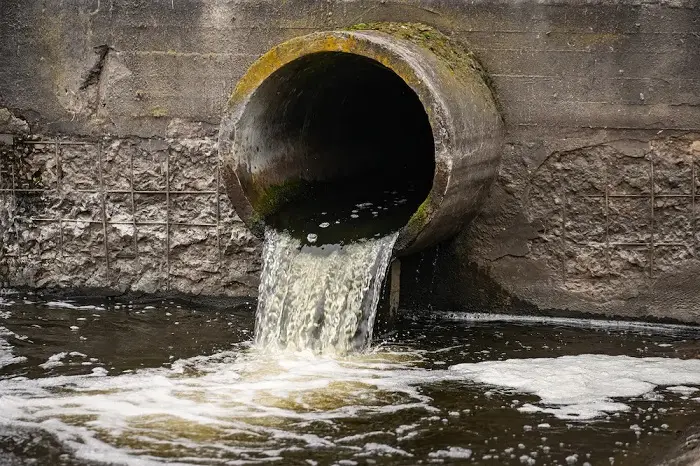A sewer smell in your house can be an alarming issue. It not only indicates potential plumbing problems but also poses health risks if not addressed promptly. Understanding the causes of these odors can help homeowners take the necessary steps to eliminate the problem and maintain a safe and pleasant living environment. In this article, we’ll explore common reasons for sewer smells, how to identify them, and what you can do to fix the issue.
The unpleasant odor of sewage can make any home feel unwelcoming. Recognizing the source of this smell is crucial for effective resolution. This article will discuss various factors that may contribute to sewer odors in your home, including plumbing issues, venting problems, and other environmental factors.
Common Causes of Sewer Smells
1. Dry P-Traps
One of the most common causes of sewer smells in a house is a dry P-trap. A P-trap is a curved section of pipe under sinks, showers, and bathtubs that holds a small amount of water. This water creates a seal that prevents sewer gases from entering the home. If a fixture has not been used for an extended period, the water in the P-trap can evaporate, allowing odors to escape.
Solution: Run water down the drain of infrequently used fixtures to refill the P-trap. This should eliminate the smell.
2. Clogged Drains
Clogs in your plumbing system can trap food particles, hair, soap, and other debris, leading to foul odors. If a drain is partially blocked, it may allow sewer gases to rise, creating an unpleasant smell.
Solution: Use a plunger or a drain snake to clear the blockage. For persistent clogs, consider using a mixture of baking soda and vinegar, or a commercial drain cleaner. If the problem persists, consult a professional plumber.
3. Broken or Cracked Pipes
Over time, pipes can develop cracks or breaks due to age, tree root intrusion, or shifts in the foundation. These issues can allow sewer gases to escape into your home, causing foul odors.
Solution: Inspect visible pipes for damage. If you suspect a broken pipe, it’s essential to contact a plumber for repair or replacement.
4. Sewer Line Backups
A more serious issue is a backup in the main sewer line, which can cause sewage to overflow into your home. This can happen due to blockages in the sewer line, often caused by tree roots, grease buildup, or foreign objects.
Solution: If you suspect a sewer backup, stop using all plumbing fixtures and contact a professional plumber immediately. They can perform a video inspection to identify the problem and take appropriate action.
5. Improper Venting
Plumbing systems are designed with vent pipes to release sewer gases safely outside. If these vents are blocked or improperly installed, gases can build up and escape into your home.
Solution: Inspect vent pipes for obstructions, such as debris, bird nests, or ice. If you cannot access the vents safely, contact a plumber for assistance.
6. Faulty Toilet Seals
Toilets have wax seals that create a barrier between the toilet and the drain pipe. If this seal becomes damaged or worn, it can allow sewer gases to seep into your bathroom.
Solution: Check for any signs of leaks around the base of the toilet. If you notice any issues, it may be necessary to replace the wax seal.
7. Septic Tank Problems
If your home uses a septic system, a full or malfunctioning tank can cause sewer odors. When the tank is full, waste can back up into your home, leading to unpleasant smells.
Solution: Schedule regular septic tank pumping and maintenance to prevent backups and odors.
Other Potential Causes
1. Garbage Disposal Issues
A malfunctioning garbage disposal can cause unpleasant odors due to trapped food particles. If the disposal is not functioning correctly, it may not grind food waste effectively.
Solution: Run the disposal regularly and clean it by grinding ice cubes and citrus peels. For persistent odors, consider a deep cleaning with baking soda and vinegar.
2. Mold and Mildew
In some cases, sewer smells can be caused by mold or mildew in damp areas of your home, such as basements or crawl spaces. These growths can emit a musty odor similar to sewage.
Solution: Address moisture issues by improving ventilation and using a dehumidifier. Clean any visible mold with appropriate cleaning solutions.
3. Household Chemicals
Certain household chemicals can also produce odors that may be mistaken for sewage. If you have recently used strong cleaners, the fumes might create an unpleasant environment.
Solution: Ensure proper ventilation when using strong chemicals and consider switching to more natural alternatives.
Prevention Tips
To minimize the chances of sewer smells in your home, consider the following preventative measures:
Regular Maintenance: Schedule routine plumbing inspections and maintenance to catch potential issues early.
Use Fixtures Regularly: Run water in all drains regularly, especially in seldom-used bathrooms or basements.
Monitor Your Septic System: If you have a septic system, keep track of its maintenance needs and pumping schedule.
Proper Disposal Practices: Avoid flushing items that could clog your plumbing, and dispose of grease and food waste properly.
Conclusion
A sewer smell in your house can be caused by various issues, from simple problems like dry P-traps to more complex ones like sewer line backups. By understanding the potential causes and taking proactive measures, homeowners can effectively address these odors and maintain a healthy living environment. If the source of the smell is unclear or persistent, consulting a professional plumber is always a wise choice.
Related topics:

